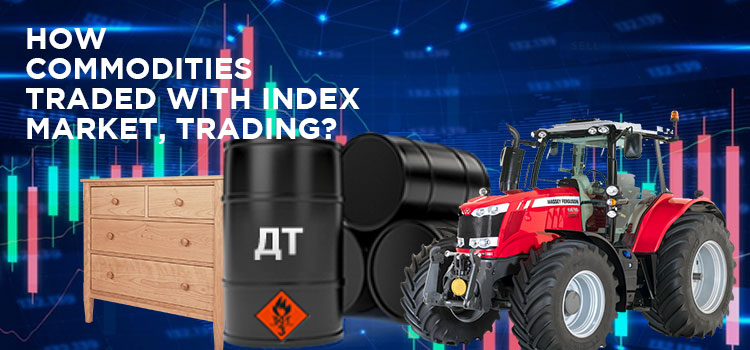How Commodities Traded Are: Commodities have been an instrument of exchange from long ago. in earlier times goats and cattle have been sold in exchange of money or grain.
What is a commodity | How Commodities Traded?
Anything that can be used as a sellable good or that could be exchanged in terms of money, or some financial favour is termed as a commodity. For example, primary sector products like crops, e.g., wheat, maize, barley, etc. or a dairy product like milk, meat, etc. or it could be oil and natural gas.
As we have learned about what are commodities, let us get a more in-depth analysis of how the commodities traded? The answer is commodities are traded in two basic ways: one is through the exchange, and one is direct.
The direct way is the one which is used from primitive time’s, i.e. one get money in exchange of goods without the involvement of any third party. And the other way is used by the investors or brokers, more preferably to enhance their portfolio, in this method goods are exchanged through exchange markets. For example, if we want to import some electronic goods from abroad, then this can’t be brought directly from the supplier. It has to be brought only after paying exchange duties that we term as customs duties.
How Can We Compare Commodity Market With Share Market?
Apart from the above discussion investors prefer to trade in commodity markets along with share markets because commodity markets generally trend opposite to the share markets. And as they totally depend on demand and supply variations, hence they are very difficult to predict for future trade scenarios.
What is Commodity Index?
A commodity index is a measuring tool with which a trader can see the changing market prices of commodities in international or local markets w.r.t. Demand and supply and accordingly take an early action to change its business strategy for-profit cause.
What are Commodity Markets?
The commodity markets are the market places that deal in commodity exchange trades.
What is FIX in Commodity Trading?
Before 1992 there were only NYSE in which trade was made by brokers only. It was not easy for an individual to directly trade in these markets. Also, it wasn’t easy to trace one’s current ranking in the stock market. So after 1992, electronic commodity trading has started to make it easy to access the real-time position of a trader in stock markets and commodity markets by using FIX (financial information exchange) protocol.
Using FIX protocol via online medium, a trader can quickly check its position in the market and changing market prices of commodities in a real-time.
After getting the basic idea of commodities and markets, you must be thinking of how to trade in commodity markets, so here are some fundamental steps down below:
- First, decide about the market, i.e. choose which product or good you can trade well and churn out the profit. There are numerous things to trade on like gold, oil and natural gas and CFD’s.
- Second is to decide whether you want to buy or sell a commodity? That is you can buy an entity for a long time if you think the price of the same will rise later on. And sell the commodity in a short while when you think the price of that commodity is going to decrease in the near future.
- The third is deciding your trade size, aka spread betting. Just plan on how many types of CFD‘s and till what point movements you want to trade.
If you want to assure you against trade loss risks, then you can choose any of the listed stop-loss order. Among all of the stop-loss orders, the GSLOs (guaranteed stop-loss order) insures you from loss by taking some premium, and the premium is returned to the trader if the GLSO is not fired.
- Forth is to monitor your position on a real-time and exit at a safe exit point where you earn a profit.
Now, after understanding about trading techniques, let us know trading contracts in commodity markets.
Types of Contracts
Two types of contracts are used in commodity dealings. i.e. forward contracts and futures contracts.
Forward contracts: these contracts are signed at fix price at that time and abide to pay on a fix future date just after delivery of goods. This type of contracts is signed between farmers and crop buyers.
Future contracts: In this type of contracts product quality, quantity, its grade is already fixed, and the price factor is the only one which is left variable as per the future market fluctuations. This type of trade contract is conventional in purchasing crude oil etc.
Conclusion – How Commodities Trade
It is suggested that if you want to understand more about commodity trading, then you will have to jump into the market and see the real-time activities. If you start with small amounts and followed risk management strategies, then you will get benefited from this.

